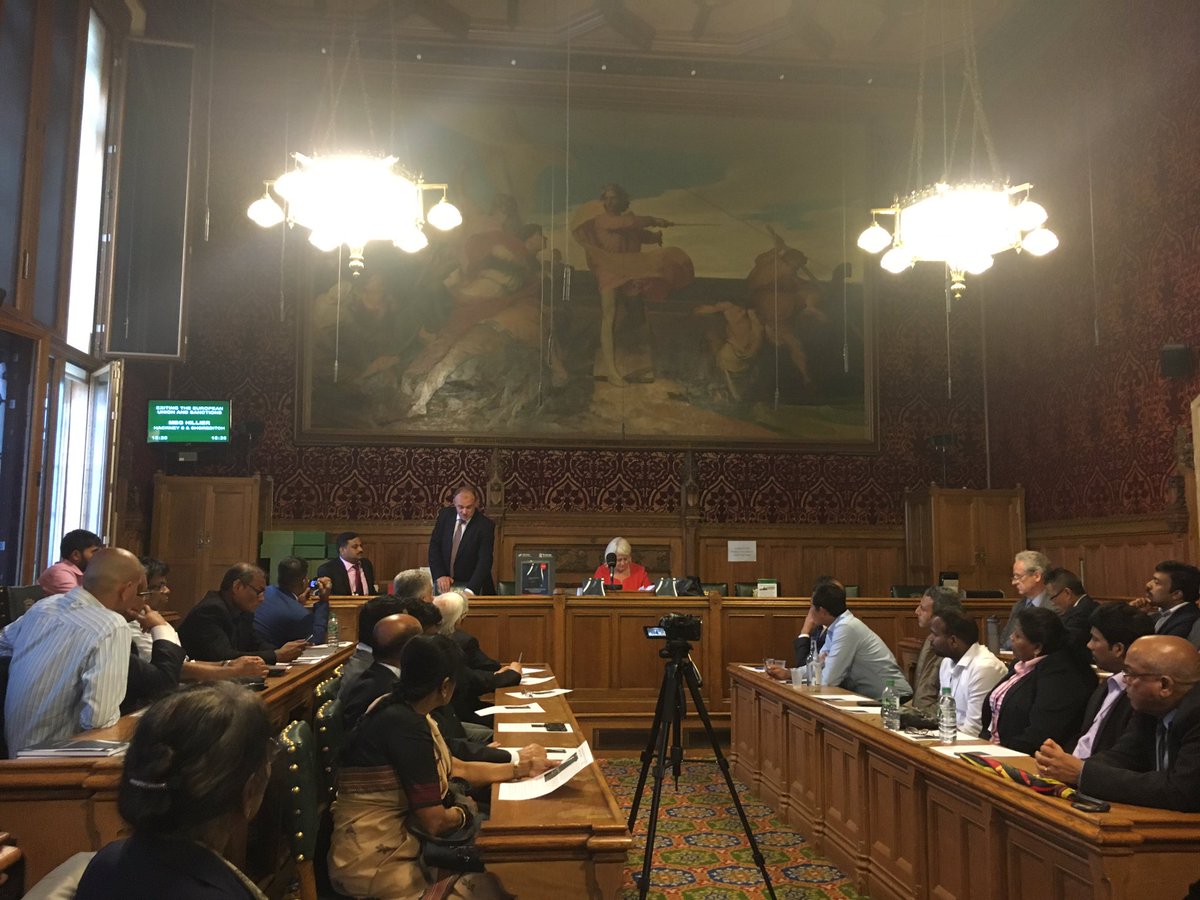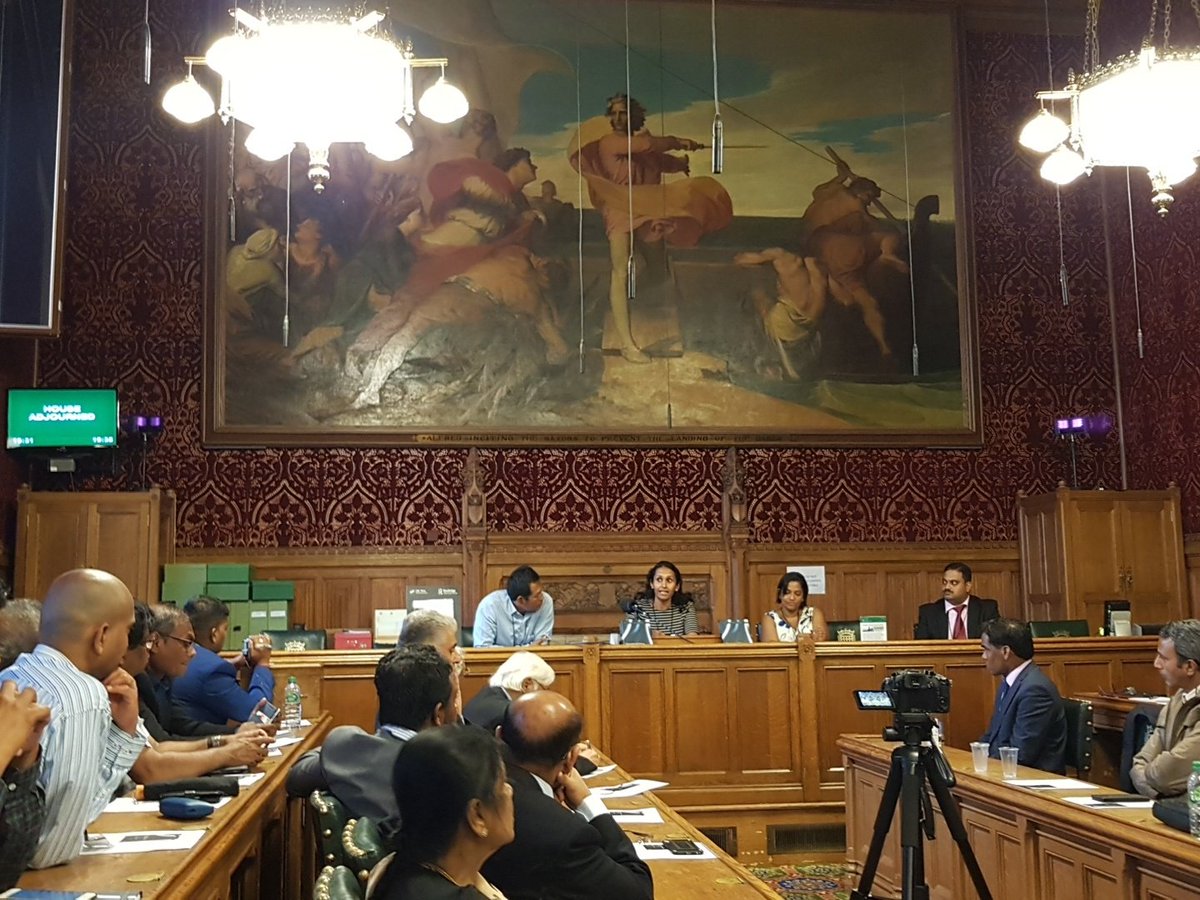British parliamentarians and academics discussed the Sri Lankan state's ethnocratic nature at a book launch in the Houses of Parliament on Wednesday.
'Government and Politics in Sri Lanka: Biopolitics and Security', authored by Dr Sriskanda Rajah focuses on Sri Lanka’s post-colonial policies and democratic structure and argues that Sri Lanka functions as an ethnocracy leaning on authoritarianism, and was launched with a discussion on Sri Lanka by a panel of academics and Members of Parliament.
Speaking at the event the Shadow Chancellor of the Exchequer John McDonnell stressed the importance of discussing the characteristics of the Sri Lankan state that allow for the oppression of Tamils, adding that Tamils must be allowed to determine their own future.

Liberal Democrat MP for Kingston & Surbiton Sir Edward Davey questioned whether Sri Lanka could be classified as a democracy given its failure to protect the rights of all communities. He added that the new Sri Lankan government had tactfully improved international relations whilst failing to deliver on justice and return of appropriated lands.
Labour MP for East Ham Stephen Timms, drawing upon the damning exit statement of UN Special Rapporteur Ben Emmerson’s visit to Sri Lanka, called for renewed international pressure for an international independent inquiry and justice process.
Labour MP for Ilford North Wes Streeting reiterated calls for renewed pressure on Sri Lanka as it was faltering on its commitments to the United Nations Human Rights Council.
Chairing the event Labour MP Siobhain McDonagh said a prerequisite to sustainable peace in Sri Lanka was credible truth and justice.
A representative of the Kurdish Regional Government also contributed to the event, stating that Kurds and Tamils had been subject to torture and abuse by successive governments. He further added that the Kurdish people fully supported the Tamil right to self-determination in Sri Lanka.
Speaking about the book, its author Dr Sriskanda Rajah argued that Sri Lanka’s democratic institutions they were organised along ethnological lines. The author added that Sri Lanka is better understood as a Sinhala Buddhist ethnocracy than a liberal democracy.
Dr Maung Zarni recalled his existentially difficult experiences of being a Buddhist in Burma and observing the systemic oppression of the Rohingya Muslim community. He further added that both Burma and Sri Lanka were on a similar path heading towards an authoritarian ethnocracies.
Lecturer in Comparative Politics and author of Tamils and the Nation: Comparing India and Sri Lanka, Dr Madura Rasaratnam said the book shows that ethnic violence can be pursued through peace and how it was being carried out in post-war Sri Lanka. Dr Rasaratnam further stressed that Sri Lanka continued to manage the Tamil people by inflicting economic, social and physical pain on a path towards slow extinction of the Tamil nation.
The event ended with a Question & Answer session chaired by Associate Lecturer and PHD Candidate at SOAS University of London Vino Kanapathipillai.

